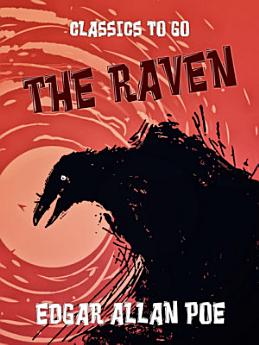The Raven
Mar 2019 · Otbebookpublishing
Ebook
30
Pages
family_home
Eligible
info
reportRatings and reviews aren’t verified Learn More
About this ebook
"The Raven" by Edgar Allan Poe is a captivating anthology that draws readers into the shadowy realms of the human psyche. At its heart is "The Raven," a narrative poem that delves into the depths of grief and the haunting power of memory. Set on a desolate December night, the story follows a sorrowful narrator mourning the loss of Lenore. His solitude is shattered by a mysterious tapping at his chamber door, leading to an eerie encounter with a talking raven. The raven perches upon a bust of Pallas, repeatedly uttering the word "Nevermore," which echoes the narrator's despair and longing. This classic piece of American fantasy poetry explores themes of sorrow, longing, and the unyielding grip of memory. Poe's masterful use of rhythm and repetition amplifies the poem's chilling atmosphere, making it a timeless exploration of the human condition. "The Raven" remains an essential read, resonating with anyone who has faced loss and grappled with the shadows of their past. Its haunting narrative and evocative language ensure that it continues to captivate readers, offering a profound reflection on grief and the search for solace. With ravens, fantasy poetry, and American literary mastery at its core, this anthology promises an unforgettable journey through the eerie and the emotional. Dive into Edgar Allan Poe's world where every word is meticulously crafted to leave a lasting impact, inviting readers to ponder the nature of loss and the echoes of memory. Discover why "The Raven" continues to intrigue and resonate, making it a must-read for lovers of poetry and those seeking a deeper understanding of the human experience.
About the author
Edgar Allan Poe, born on January 19, 1809, in Boston, Massachusetts, remains one of the most enigmatic and influential figures in American literature. Orphaned at a young age, Poe was taken in by the wealthy Allan family of Richmond, Virginia, though his relationship with his foster father was tumultuous. This instability marked much of Poe's life, leading to struggles with poverty, alcoholism, and personal loss.Poe's literary career began with poetry, but he soon became a master of the short story, pioneering the genres of horror and detective fiction. His works, such as "The Tell-Tale Heart," "The Fall of the House of Usher," and "The Raven," are celebrated for their macabre themes, psychological depth, and innovative use of narrative structure. Poe's exploration of the human psyche and his ability to evoke terror and suspense have left an indelible mark on literature.Not without controversy, Poe's life was marred by accusations of plagiarism, bitter literary feuds, and his often volatile personality. Despite these challenges, his critical essays and theories on literary aesthetics, particularly his concept of "unity of effect," have had a lasting impact on writers and critics alike.Poe's influence extends beyond literature; he is often credited with laying the groundwork for modern detective fiction, inspiring authors like Sir Arthur Conan Doyle and Agatha Christie. His visionary work also prefigured the Symbolist movement and has been a touchstone for countless artists, filmmakers, and musicians.Edgar Allan Poe's legacy is a testament to his genius and his ability to tap into the darkest corners of the human experience, making him a timeless figure whose work continues to captivate and haunt readers around the world.
Rate this ebook
Tell us what you think.
Reading information
Smartphones and tablets
Install the Google Play Books app for Android and iPad/iPhone. It syncs automatically with your account and allows you to read online or offline wherever you are.
Laptops and computers
You can listen to audiobooks purchased on Google Play using your computer's web browser.
eReaders and other devices
To read on e-ink devices like Kobo eReaders, you'll need to download a file and transfer it to your device. Follow the detailed Help Center instructions to transfer the files to supported eReaders.








